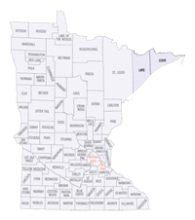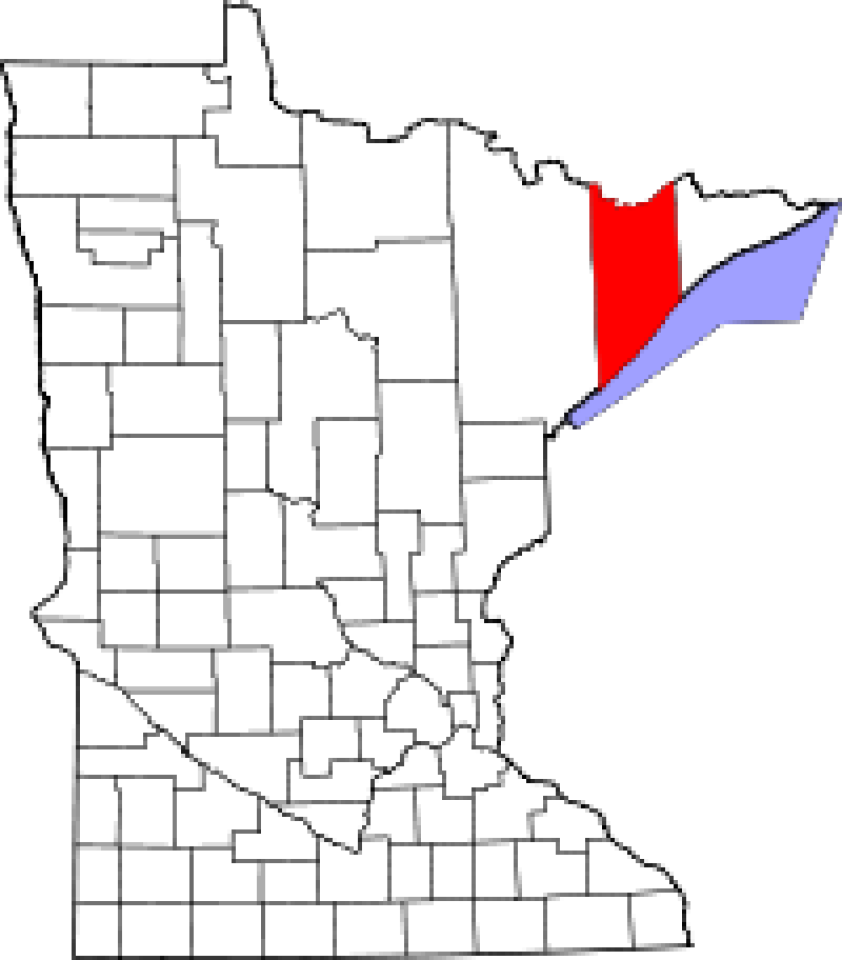
I just spoke with Danna MacKenzie of Cook County and Gary Fields of National Public Broadband (working with Lake County) to find out just how excited they are about yesterday's announcement of broadband stimulus awards. Both Lake and County (separate projects) have been funded to build fiber-to-the-home networks to everyone on the power grid in the region. They are pretty excited. In a few years, these North Shore Communities will likely have better broadband options than the metro region of Minneapolis and Saint Paul -- a far cry from the beginning of this year when a single fiber cut stranded the whole north shore. Bob Kelleher at Minnesota Public Radio covered the awards:
Combined, they will connect 37,000 residents, 1,000 businesses and 98 institutions such as hospitals and schools.
Cook County actually has a double whammy - they already stood to benefit from the North East Service Cooperative, which is building high capacity fiber-optic lines through the North Shore to offer middle-mile backhaul and connect local government facilities and schools. As of yesterday, they will also get a fiber-to-the-home network from the Arrowhead Electric Cooperative. Cook, currently served in part by Qwest, has little access to true broadband -- some 37% have access to anemic DSL connections and the rest are stuck with dial-up. Details of the award from Kelleher at MPR:
Joe Buttweiler, who directs membership services with the Lutsen-based Arrowhead Electric Cooperative, said 70 percent of the federal award is a grant and the remainder a loan. He said the cooperative will add another $600,000 for capital.
Back in April, Blandin's Broadband blog published the short summary of the Arrowhead project:
Arrowhead Electric Cooperative proposes to build and operate a fiber optic network to the residential and commercial members of the cooperative as well to underserved safety and anchor agencies in our service area. This project is designed as an open network allowing multiple qualified vendors to offer services on the system.
I will be fascinated to see how the open network fares -- who will choose to provide services on it, and how will the network fare? This open access arrangement is our single best hope as a nation to escape from the extremely limited broadband competition we see presently.

Over in Lake County, the new network will reach into parts of St Louis County, including the communities of Ely, Babbit, Hoyt Lakes and Fairbanks. Some of the these folks have been working for many years to build a community fiber network, which undoubtedly facilitated their joining the Lake County project. See project map [pdf]. From the RUS Press Release for Lake County [pdf]:
This approximately $66.3 million award, matched by $3.5 million in private contribution, will allow Lake County to offer FTTP advanced voice, video and data services to every home and business in Lake and eastern Saint Louis Counties. Approximately 37,000 people stand to benefit, as do roughly 1,000 businesses and 98 community institutions. In addition to the 510 jobs Lake County estimates this project will create upfront, it will provide a foundation for economic growth and job creation for decades to come.
A press release from the project notes [pdf]:
Construction of the network is expected to begin in Spring, 2011. The first customers are expected to be connected within one year. The entire network will be completed within 3 years. Lake County Commissioner Paul Bergman stated, “This network will be designed with redundant connectivity, so that service interruptions that we have experienced this last year won’t be possible.
A story from the Duluth News Tribune offers more background about the project:
The $66.3 million award from the Department of Agriculture comes through its Broadband Initiatives Program. After other matching funds, the total will be about $70 million, Bergman said. The award breaks down as a $56.4 million loan and a $10 million grant. There will be about $3.5 million on municipal bonds issued, which would be paid back with operational revenues.
When we at ILSR learned of the broadband stimulus program last year, these are the exact sorts of programs we hoped would be funded. So as we hit the end of the broadband stimulus grants, it is nice to go out on a high note. Update: Beyond the stimulus, Duluth must be considering what it will do -- it will soon have a wealth of middle-mile but it has been left out of last-mile investment whereas neighbor Two Harbors will get FTTH. Update 2: It seems that some who are not on the grid want to connect to the Net. Fascinating!







